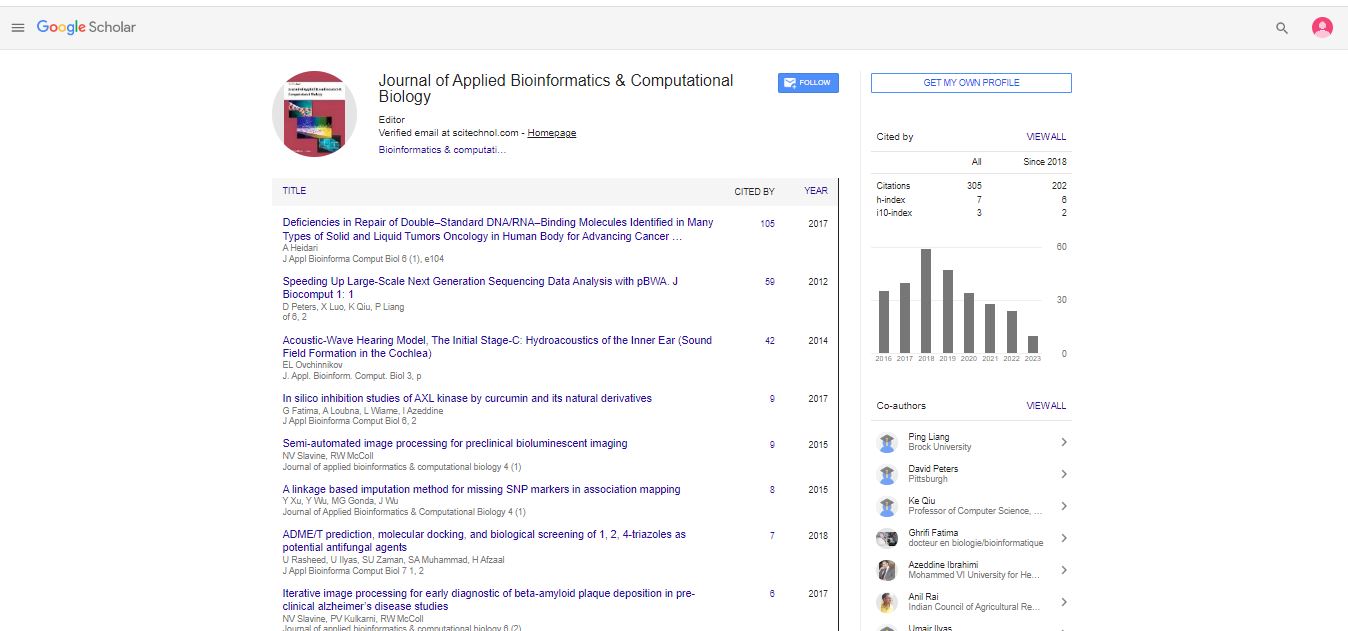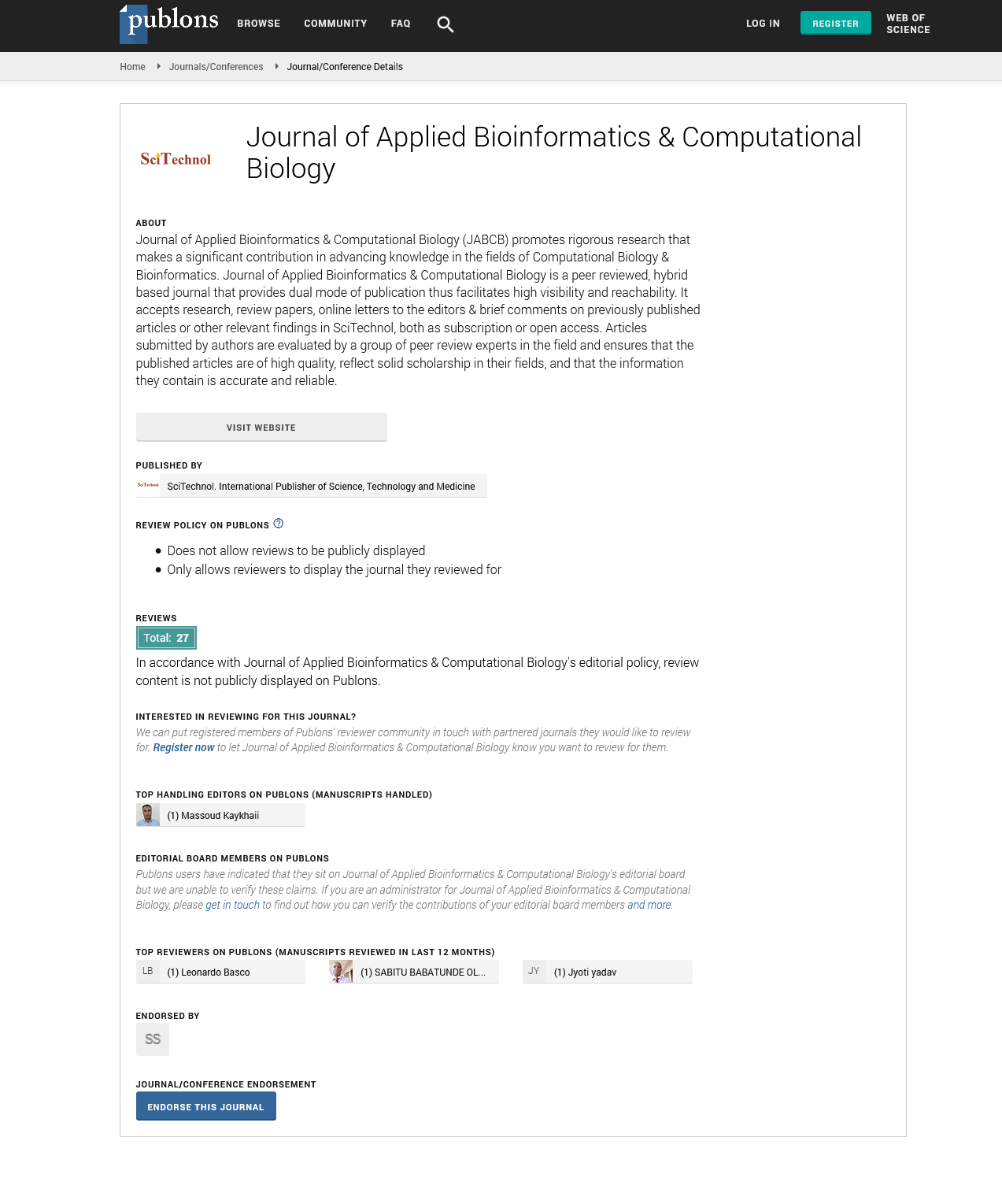Binding mechanism of synthesized 5β-dihydrocortisol and 5β-dihydrocortisol acetate with human serum albumin to understand their role in breast cancer
Monika Kallubai
University of Hyderabad, India
: J Appl Bioinforma Comput Biol
Abstract
Our study is all about the biological interactions of synthesized 5β-dihydrocortisol (Dhc) and 5β-dihydrocortisol acetate (DhcA) molecules with carrier protein Human Serum Albumin (HSA). The cytotoxic study was performed on breast cancer cell line (MCF- 7) normal human embryonic kidney cell line (HEK293), the IC50 values for MCF-7 cells were 28 and 25 μM, respectively, whereas no toxicity in terms of cell viability was observed with HEK293 cell line. Further experiment proved that Dhc and DhcA induced 35.6% and 37.7% early apoptotic cells and 2.5%, 2.9% late apoptotic cells respectively, morphological observation of cell death through TUNEL assay revealed that Dhc and DhcA induced apoptosis in MCF-7 cells. The complexes of HSA– Dhc and HSA–DhcA were observed as static quenching, and the binding constants (K) was 4.7±0.03×104 M-1 and 3.9±0.05×104 M-1, and their binding free energies were found to be -6.4 and -6.16 kcal/mol, respectively. The displacement studies confirmed that lidocaine 1.4±0.05×104 M-1 replaced Dhc, and phenylbutazone 1.5±0.05×104 M-1 replaced by DhcA, which explains domain I and domain II are the binding sites for Dhc and DhcA. Further, CD results revealed that the secondary structure of HSA was altered in the presence of Dhc and DhcA. Furthermore, the atomic force microscopy and transmission electron microscopy showed that the dimensions like height and molecular size of the HSA– Dhc and HSA–DhcA complex were larger compared to HSA alone. Detailed analysis through molecular dynamics simulations also supported greater stability of HSA–Dhc and HSA–DhcA complexes, and root-meansquare- fluctuation interpreted the binding site of Dhc as domain IB and domain IIA for DhcA. This information is valuable for further development of steroid derivatives with improved pharmacological significance as novel anti-cancer drugs.
Biography
E-mail: monikasku.7@gmail.com
 Spanish
Spanish  Chinese
Chinese  Russian
Russian  German
German  French
French  Japanese
Japanese  Portuguese
Portuguese  Hindi
Hindi 
